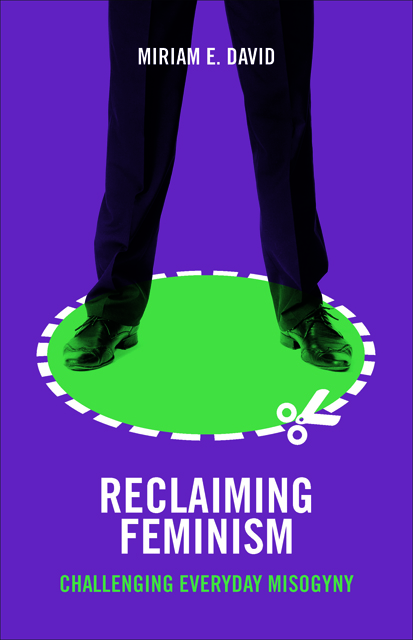Book contents
- Frontmatter
- Contents
- About the author
- Acknowledgements
- A note about the waves of feminism
- one Feminist reflections on a lifetime in academe
- two Changing feminism
- three Feminist pioneers
- four Gender and generations
- five Cultivating feminists
- six A feminist resurgence
- seven Feminists on campus
- eight Feminist fortunes
- References and select bibliography
- Index
three - Feminist pioneers
Published online by Cambridge University Press: 15 April 2023
- Frontmatter
- Contents
- About the author
- Acknowledgements
- A note about the waves of feminism
- one Feminist reflections on a lifetime in academe
- two Changing feminism
- three Feminist pioneers
- four Gender and generations
- five Cultivating feminists
- six A feminist resurgence
- seven Feminists on campus
- eight Feminist fortunes
- References and select bibliography
- Index
Summary
Women, and feminism, and the zeitgeist
‘It was the zeitgeist’ is how women of my generation – born in the shadows of the Second World War across cultures, countries and continents and ‘baby-boomers’ – described how they became feminists. What changes have there been to the zeitgeist or ‘spirit of the times’? Even this term is one that has only recently come to have meaning in public quarters and is used in various media. I originally assumed that it was either a Yiddish word, hence its more recent common currency, as these have become more acceptable as part of popular rather than strictly Jewish culture, or drawn from sociology and such analysis. I discovered that the term is indeed German, but that it draws from Hegel (a forerunner to Marx), a German 19th-century philosopher, and from other political philosophers, psychologists and psychoanalysts rather than sociologists. No matter its origins, it is certainly a useful term to review changing ideas.
It is extraordinary how extensive change has been, especially in the 21st century, with an explosion of media interest in feminism. Mostly this is not about politics at the grassroots level, but about gender or sexual politics, sociocultural relations between men and women in everyday life. This is in the context of massive change in markets and neoliberalism, with the internet representing new forms of competitive capitalism. For instance, Hadley Freeman, a Guardian (feminist) columnist and film critic, turned the notion of zeitgeist on itself, writing that:
… zeitgeist enthusiasts will delight in how weirdly plausible the film feels. When Jonze started writing Her, Siri hadn’t been invented; now expecting one’s smart phone to talk back is near commonplace.... Internet addicts like me will see the film as a bang-on indictment of how so many of us use technology as a form of escape from our lives, while trying to convince ourselves it enhances it... (Freeman, 2014; emphasis added)
Interestingly, despite her feminism, she did not comment on the continuing sexism or misogyny in the film she was celebrating. Entitled ‘Her’, the film is about how a smart phone, variously called ‘Samantha’ or ‘mother’, talks back to the film’s protagonist played by Joaquin Phoenix.
- Type
- Chapter
- Information
- Reclaiming FeminismChallenging Everyday Misogyny, pp. 53 - 86Publisher: Bristol University PressPrint publication year: 2016

